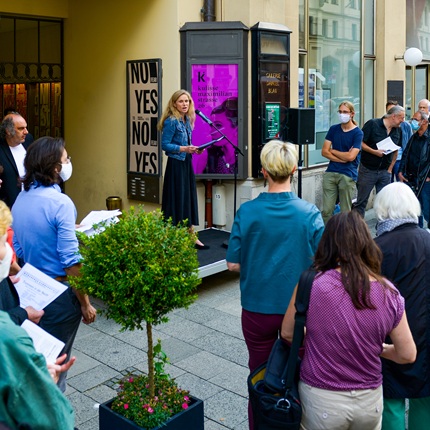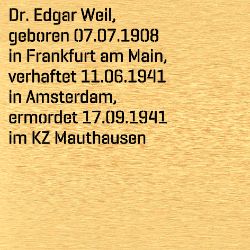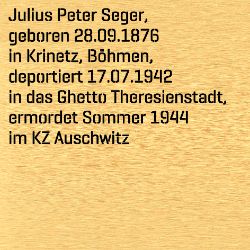Hans Tintner was born on November 28, 1894 in Vienna. His parents were the Jewish insurance director Josef Tintner and his wife Friderike. Hans Tintner fought for Austria-Hungary in the First World War and for a time was reported as missing in action. After the war he moved to Munich, living at Böcklinstraße 54. He appeared regularly in the Münchner Kammerspiele theatre, including the role of police commissioner Duvoisin in Frank Wedekind’s drama „Schloss Wetterstein“ (“Castle Wetterstein”). The premiere on December 6, 1919 was accompanied by anti-Semitic protests. The historian Michael Brenner has described what transpired: “The rightwing scene targeted the Jews in the theatre [...] During the sixth performance around fifty students and officers attacked any theatre patrons who seemed to look Jewish.” After two further performances the police had the play taken off the program. In 1923 Hans Tintner moved to Berlin and worked there as scriptwriter, director, and production manager in a dozen films. Two years later he married the Swedish author Elly Augusta Carlsson; they divorced in 1935. Hans Tintner became famous internationally in 1930 for his film “Cyankali” (“Cyanide”). It was based on Friedrich Wolf’s “Cyankali. § 218”, a controversial drama about abortion that was removed from the program in Munich after just five performances. In March 1933, only a few weeks after the seizure of power, the Nazis banned “Cyankali”. Hans Tintner fled Germany and worked for the Vienna office of Fox Film Corporation. He synchronized American films banned in Germany, creating employment for expelled actors, including Walter Gynt and Ludwig Donath, both former members of the ensemble at the Münchner Kammerspiele. Following the annexation of Austria by the German Reich on March 12, 1938 Hans Tintner fled to Paris. His next ‒ and final ‒ trace is four years later, his name appearing on the deportation list of convoy no. 7 at Drancy transit camp northeast of Paris. Hans Tintner was deported to Auschwitz extermination camp on the morning of July 19, 1942. He was murdered there at the end of September 1942. (text Janne and Klaus Weinzierl, editor C. Fritsche, translation P. Bowman)







-Rowohlt_image.jpg/jcr:content/EZ_BILD_14583.jpg)

